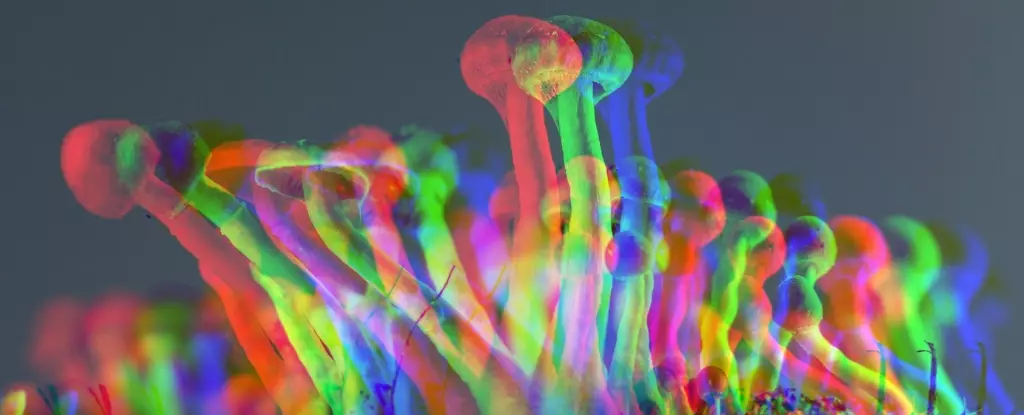For decades, psilocybin has been primarily associated with altering consciousness—an intriguing substance known for its psychedelic effects and potential mental health benefits. However, recent groundbreaking research suggests that this compound’s capabilities may extend far beyond the psychological domain. A pioneering study conducted by scientists at Emory University and Baylor College of Medicine presents compelling evidence that psilocybin could play a role in promoting biological longevity, challenging our conventional understanding of its function. This insight not only broadens the scope of psilocybin’s therapeutic potential but also positions it as a candidate for addressing the physical toll of aging—a concept that could revolutionize future healthcare approaches.
Science Illuminates Psilocybin’s Role in Extending Lifespan
The research took an innovative approach by examining the effects of psilocybin in controlled environments—both on human cell cultures and live mice. In cell studies, adult human skin fibroblasts and fetal lung cells were exposed to psilocin, the active metabolite of psilocybin. These cells exhibited a remarkable delay in reaching senescence, the natural aging process where cells lose their ability to divide. Specifically, the treated lung cells lasted 57% longer before becoming dormant, while skin cells showed a 51% increase. These numbers suggest that psilocybin might interfere with fundamental aging mechanisms at a cellular level.
Meanwhile, in vivo experiments with mice provided additional evidence of psilocybin’s longevity-promoting properties. Female mice aged around 19 months—roughly comparable to 60–65-year-old humans—received regular doses of psilocybin over ten months. The results were striking: 80% of the treated mice survived the entire period, compared to just 50% in the untreated group. Moreover, subtle yet noticeable signs of aging—such as fur deterioration and increased white hairs—were less pronounced in the treated group. Although the study did not extensively quantify age-related physical features, these preliminary observations hint at psilocybin’s capacity to enhance healthspan, not just lifespan.
Implications for Human Aging and Future Therapies
What does this groundbreaking research imply for human aging? While animal and cell model results are promising, they serve as a foundational step toward understanding psilocybin’s true potential in human health. If these findings translate effectively, psilocybin could emerge as a novel intervention in geriatrics—helping individuals age more gracefully, with better health and vitality in their later years. The prospect of extending healthy lifespan has long been a scientific and societal goal; this study injects new optimism into that pursuit.
Moreover, the research ignites a broader conversation about redefining the uses of psychedelics. Traditionally stigmatized and misunderstood, these substances now reveal a multifaceted potential in medicine—ranging from mental health treatment to possible anti-aging strategies. The findings also reinforce the importance of ongoing research, encouraging the scientific community to explore these promising avenues with rigor and openness. If psilocybin can indeed modulate cellular aging pathways, it could be a game-changer in our fight against age-related decline, ultimately improving quality of life and reducing health costs associated with aging populations.
The emerging evidence positions psilocybin not merely as a mind-altering substance but as a candidate for extending vitality and life itself. The journey from psychedelic to life-extension agent is still in its infancy, but the potential it holds for transforming our understanding of aging warrants careful attention and bold scientific exploration.

